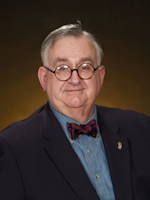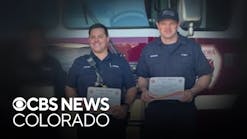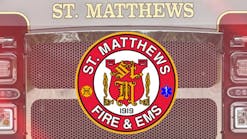Not long ago I had the pleasure of partaking in another outstanding and informative sermon from Pastor Scott Brown at the Colts Neck, NJ, Reformed Church. The concept of shared knowledge was at the heart of his message to our flock. One of the primary aspects which I took away revolved around the fact that many times we run into situations we do not understand. They are new to us and we need someone to explain them to us.
We need help from others to find our way in the world and sometimes we fail to seek out the necessary help and advice. Many are the reasons why we fail to reach out to others for guidance. Sometimes we are too proud. At other times we are afraid to appear stupid. Whatever the reason, bad things can happen when we wander through the world in a state of ignorance.
As he often does, Scott got me thinking hard about what was going on in the world around me. I was scribbling thoughts into my little pocket notebook at a mile-a-minute rate. After the service, a member of the congregation came up to me after the service and asked about my note taking. Clark Petrie mentioned that he often saw me jotting notes in my book and wondered why.
We had an interesting discussion. I spoke of the fact that many of my commentary messages come to me when I am in the congregation at the Colts Neck church. Sometimes my commentary has a direct tie-in to one of the sermons. At other times, my mind just starts wandering all over creation when the spirit moves me. Clark in now a regular reader of my Firehouse.com works.
This visit with you today is actually the sum of several different sermons over the past couple of months. Three different sets of thoughts and notes brought me to the point where I felt I should cover the concept of mentoring with you. Far too many among us do not know what mentoring is and how important it can be to the future of our fire departments. Mentoring is a form of education and influence where the lived experiences of one person are shared with another. More than that, a mentoring relationship involves equal parts of sharing, teaching, and motivating.
2011 has been a year of firsts for me. Some have been extremely positive, while others have been as negative as any which ever happened to me in my 64 years of life. Missed and blown engagements were mixed in with some of the best new interactions and relationships I have experienced in the past two decades. In a couple of instances misplaced faith in certain people cost me dearly. Yes my friends, there were peaks and there were valleys. There was joy and there was embarrassment. There was my tuba vacation with the Windjammers and there were the summer concerts down at the Jersey Shore in Ocean Grove. What a mix of emotions and experiences.
The key here is that this jumble of conflicting experiences did not kill me. Like many of you I have often heard it said that what doesn't kill you makes you stronger. I am here to tell you that this seems about right to me as I move towards the coming New Year. 2011 has presented me with a number of challenges which have strengthened my resolve to become a better person.
It has long been my position that the future will happen regardless of how much you and I want things to remain the same. The living of life has taught me that one thing is abundantly clear about the future. The more you seek to interact with the future, the better will be your chance of having things go you way. There are no absolutes. Life will happen anyway, but you can take a hand in the ways things might turn out. In this way, you can possibly influence what will happen.
That having been said, let me point out that nothing is certain in life. We go to bed each night firmly believing that we will wake up in the morning. So far we have, however there are those who do not. What I am saying is that we take a lot for granted in life, and that regardless of what we do, something always happens.
As a New York Football Giant's fan since 1955, many have been the disappointments along the way. However, it has been my experience that the less you prepare, the more likely things are to go in a direction which is not in your best interest. Conversely, the harder you worker, the luckier you seem to be. That is how I approached my studies for promotion in the Newark Fire Department. When I chose to study hard, I succeeded. When I did not, well, there's a story for another time.
If you fail to take charge of the planning for your future, you will be blown about like the leaves which are covering my yard as I write these words. Bob Dylan spoke of this phenomenon when he sang the lyric which told my generation that, "…the answer my friend is blown' in the wind." It is my belief that he was suggesting that the future is an uncertain commodity at best. But if you fail to recognize this, you move forward at your own peril.
Maybe I am just getting a bit sentimental as I approach the day when I can sign up for Social Security and Medicare. Maybe I am looking to help the generations which will follow to learn from the mistakes I have made over the past several decades. Which ever it might be, I am here to say that a lot of future errors might be prevented by an honest sharing of past successes and failures.
One of the definitions of experience that I have studied tells us that the more we screw up the greater will be the experience we bring to bear on future matters. Of course this will only work if the error doesn't kill us and we are able to keep good notes of what happened. Either way, you need to set up a conscious mechanism for passing down the shared experience of your more senior members to your newer members. Let me suggest that if you and your department do not engage in some form of preparation for the coming future, you and your associates will be blown about the future much like the leaves which fall each year.
Far too many among us leave things to chance. Let me suggest that one of the best things you and your department can do to avoid the chaos of chance is to create a mentorship program. While some may choose to call it a coaching program, I leave the choice of the name to you and your department. The key is to match up your experienced veterans with your eager new folks.
Derived from the Greek word mythology, the word mentor means to act as an adviser, role model, counselor, tutor and/or teacher. It has been my experience that adults learn best when they can combine the theory found in books with a certain amount of practice in an atmosphere of mutual respect and trust. However, all new firefighting personnel will require support and guidance from their mentor.
Have you ever stopped to think how you got where you are today? I sure hope that you do not think you got where you are today all by your lonesome. Each of us is a product of our own endeavors and the efforts of the people around us who thought enough of us to share their wisdom and experience with us. It was these fine folks who saw us at work and the helped us to round off the rough edges of our own mistakes.
Think back to those people who cared about you. Did they ask questions of you? Did they encourage you to ask questions of them? You bet they did. They provided knowledge and then encouraged an interaction with you that would allow for the logical development of an understanding of the 'how and why' of performing your job within the fire department. As you learned more they saw that and provided more. They always seemed to encourage you to be inquisitive.
If you choose to become a mentor you will be assessed on the value of what you impart to others. But how can you know if your efforts are paying positive dividends? What are some of the ways in which effective mentoring can be measured or observed? Here are a few:
- The mentor displays a sincere interest in student learning.
- The mentor treats their student as an individual.
- They recognize the firefighter's stage of learning.
- They establish a learning environment.
- They develop an understanding of the firefighter's learning needs.
- Learning goals are developed with and for the new firefighter.
- The mentor includes the new firefighter in the department team.
- The mentor explains what is being done and why.
- The mentor demonstrates the necessary techniques and skills.
- They work to help the new firefighter to understand their role in the fire department.
- They balance practical lessons with textbook knowledge.
- The mentor assists the new firefighter in evaluating his or her learning experience.
Not every mentor is good. How can you tell if you are dealing with a bad mentor? My research has armed me with a number of critical clues for which you should be looking. Poor mentoring skills may be demonstrated by the mentor in the following ways:
- Delegates unwanted duties to the student.
- Noticeably dislikes his or her job and/or the student.
- Lacks knowledge of the pre-registration program.
- Demonstrates poor teaching skills.
- Lacks expertise. · Breaks promises.
- Throws the student in at the ‘deep end’.
Some of the things which a poor mentor shows to the world include:
- They are distant and unfriendly.
- They do no allow people to approach them.
- You cannot rely on them to do their job.
- They have a habit of overpowering and Intimidating people.
- They are unpredictable.
- They are overprotective and do not let people try their wings.
One of the most important aspects of a mentor program involves the development of a personal relationship between the mentor and the person being mentored. This is critical because the person being mentored will be expected to develop into a professional associate of the person charged with mentoring them.
One of my favorite things to do is to welcome a new member into my fire department and then adopt him or her as my newest associate. I try to share what I have learned over the years with them in a non-threatening manner. I learned a long time ago to do my mentoring away from the bright lights and glare of a group setting. People tend to trust you more when you take the time to learn about them and then treat them as individuals. People need to see your sincerity and not think that you are just showing off in front of others.
I have heard it said that in order to be successful you must have a goal in mind. Your efforts in striving for that goal are what drive your efforts. In the world of mentoring I see the following items as a necessary combination to shoot for. You must have a solid message about what you wish to accomplish. You need to have a willing learner to receive your message. You must be a competent mentor and teacher. Most importantly, you must have the opportunity to share.
Please be aware that you cannot force feed the person you are mentoring. You need to offer knowledge and guidance and then listen to the student in order to get their feedback. It is critical for you to stick with what you know best. Be sure to stay within the comfort zone of your areas of expertise. I do not teach pump operations even though I am a pumper driver. I stay with the leadership, management, and educational topics with which I am most familiar.
Like I said earlier in this commentary, the future will come in spite of your best efforts to live in the past. You can make an important impact on your department if you work to create a way to share the experience of your veteran members with the new folks who join with you. Mentoring is critical. Work hard with your fellow experienced associates to share what you know with the new folks. Trust me, it will make a real difference.
HARRY R. CARTER, Ph.D., CFO, MIFireE, a Firehouse.com Contributing Editor, is a municipal fire protection consultant based in Adelphia, NJ. Dr. Carter retired from the Newark, NJ, Fire Department and is a past chief and active life member of the Adelphia Fire Company. Follow Harry on his A View From my Front Porch blog. He recently published several texts, including Leadership: A View from the Trenches and Living My Dream: Dr. Harry Carter's 2006 FIRE Act Road Trip. You can reach Harry by e-mail at [email protected].

Dr. Harry Carter
HARRY R. CARTER, Ph.D., who is a Firehouse contributing editor, is a fire protection consultant based in Adelphia, NJ. He is chairman of the Board of Commissioners in Howell Township Fire District 2 and retired from the Newark, NJ, Fire Department as a battalion commander. Carter has been a member of the Adelphia Fire Company since 1971, serving as chief in 1991. He is a life member and past president of the International Society of Fire Service Instructors and life member of the NFPA. He is the immediate past president of the U.S. branch of the Institution of Fire Engineers (IFE) of Great Britain. Carter holds a Ph.D. in organization and management from Capella University in Minneapolis, MN.
Connect with Harry:
Email: [email protected]





